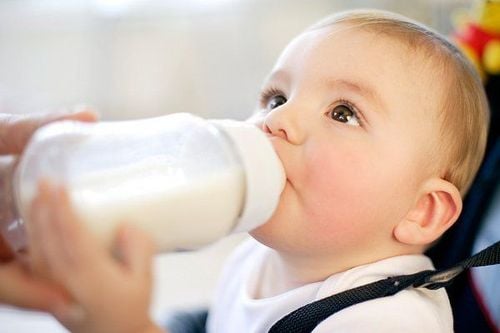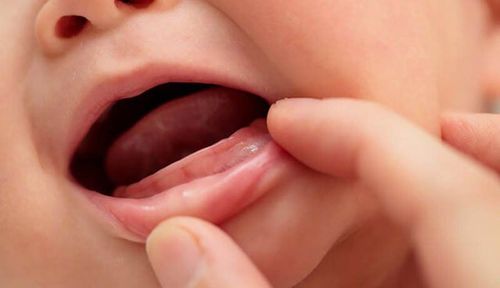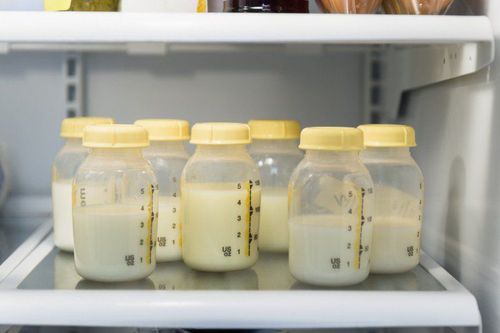The article is consulted with Master, Doctor Nguyen Cong Canh - Pediatrics - Neonatology Department - Danang Vinmec Hospital.
Some children may eat little yet still be overweight, while others consume large amounts of food without gaining weight or height. It’s essential for parents to identify the specific reasons behind their child’s lack of weight gain to implement effective solutions.
Children who eat well but grow slowly may face the following reasons:
1. Eating a lot but not enough in terms of meal quantity
Children aged 6 to 24 months have small stomachs and cannot digest large amounts of food at each meal. It's essential to gradually increase the number of meals and portion sizes according to their age.
For example:
- Ages 6-8 months: 2 meals/day, 100-150ml each.
- Ages 9-11 months: 3 meals/day, 200ml each.
- Ages 12-24 months: 3 meals/day, 250ml each.
Meals should include a variety of foods from all four food groups, transitioning from liquids to solids and sweet to savory. Milk needs also vary by age and food intake. Furthermore, parents may believe their child eats a lot, but it might not be sufficient in terms of necessary quantities or meals per day.
Trắc nghiệm: các chỉ số cần chú ý về sự phát triển thể chất của trẻ
Chiều cao, cân nặng của bé ở từng giai đoạn nên là bao nhiêu là bình thường, bao nhiêu là bất thường? Cùng ThS.BS Ma Văn Thấm điểm lại xem bạn đã nắm được các chỉ số phát triển thể chất của bé chưa nhé!The following content is prepared under supervision of Thạc sĩ, Bác sĩ y khoa, Ma Văn Thấm , Nhi , Phòng khám Đa khoa Vinmec Dương Đông(Phú Quốc)
2. Eating a lot in quantity but lacking in quality and variety
According to recommendations, we should consume 15-20 different types of food each day to ensure adequate nutrition. Most parents feed their children based on taste preferences without paying attention to the variety and quantity of food to ensure sufficient nutrients.
Even if a child eats a lot in quantity, they may still lack energy and nutrients due to poor quality. Commonly, supplementary meals often lack fats, leading to energy deficiencies. Not only do fats provide energy, but they also help absorb fat-soluble vitamins (A, D, E, K). A lack of fats can result in vitamin deficiencies, causing stunted growth.
3. Eating a lot but in excess
Introducing more food into a child’s body than they can digest can be problematic. For example, a 6-month-old baby starting on solid foods may struggle if given more than the recommended amount (2 meals and 100ml). They may not produce enough digestive enzymes, leading to undigested food, which can cause fullness or diarrhea, resulting in bloating, indigestion, refusal to drink milk, digestive disorders, and weight loss.
4. Eating a lot but not appropriately
Each child's ability to digest and absorb food varies. Some children may eat more than their peers but exceed their capacity. Therefore, balancing food intake and milk consumption is essential to ensure proper digestion and healthy development.
Certain children may have intestinal issues, liver diseases, genetic disorders, allergies, or food intolerances that limit their ability to digest and absorb food.
Conditions like hypothyroidism or pituitary dwarfism can also contribute to stunted growth.

5. Consuming excessive protein is unnecessary
Many mothers believe that giving their children a lot of nutritious foods, particularly protein-rich foods like meat, fish, shrimp, eggs, and milk, will help them grow faster. However, excessive protein can lead to digestive difficulties, reduced appetite, and decreased milk intake. It may also cause constipation, preventing proper nutrient absorption, and increasing the burden on the child's kidneys. Moreover, protein is not a primary source of energy for children; to gain weight, they need to consume adequate carbohydrates and fats, as protein only provides 13-20% of daily energy intake, depending on age.
6. Overly active children
In some cases, children with high basal metabolic rates expend a lot of energy, so they may remain thin despite eating a lot. Extremely active children who run and play a lot may also burn energy quickly, resulting in slow weight gain.
7. Children infected with worms or parasites
This can also lead to children eating a lot but still growing slowly, as these intestinal parasites "compete" for nutrients from the food. Parents should deworm their children every six months starting from the age of two.
8. Poor absorption and digestive system issues
This condition occurs when a child's digestive system lacks certain digestive enzymes or beneficial bacteria, either due to congenital factors or antibiotic use. As a result, only a small amount of food is converted into nutrients and energy for the body.

9. What to do If a child has poor nutrient absorption?
Here are some solutions for children who eat a lot but remain underweight and do not grow taller:
- Balanced Nutrition: Ensure meals are balanced with protein, carbohydrates, fats, and vegetables. Pay attention to food variety and increase the amount of oil or fat in meals. Each bowl of porridge, rice, or soup for the child should include a tablespoon of oil or fat.
- Limit Snacking: Avoid allowing children to snack between meals, which can lead to a false sense of fullness. Eating snacks before meals can prevent them from eating enough during main meals.
- Daily Nutritional Supplementation from Milk: Milk is one of the easiest sources of nutrition for children to absorb. Additional types of milk can be used to help children gain weight and increase their daily nutrient intake. Therefore, mothers should ensure that children receive an adequate quantity and quality of milk, as the milk requirement can change with age.
- Supplement Functional Foods: In addition to maintaining a proper diet and selecting the right milk for weight gain, mothers can also supplement with probiotics from food or functional foods to enhance nutrient absorption. Encouraging children to be physically active is also beneficial for their overall health and digestion.
Beyond these factors, many children who eat well but do not grow may also be affected by other elements such as genetic factors, birth weight, premature birth, intrauterine malnutrition, congenital heart diseases, metabolic disorders, endocrine issues, or high basal metabolic rates that lead to energy expenditure exceeding intake.
To arrange an appointment, please call HOTLINE or make your reservation directly HERE. You may also download the MyVinmec app to schedule appointments faster and manage your reservations more conveniently.
Note: This article is part of the Vinmec International General Hospital System's Awareness Program on Growth Retardation, with the support of Novo Nordisk
















